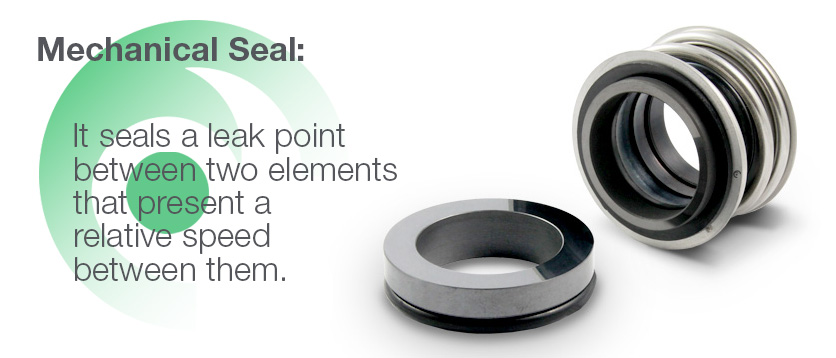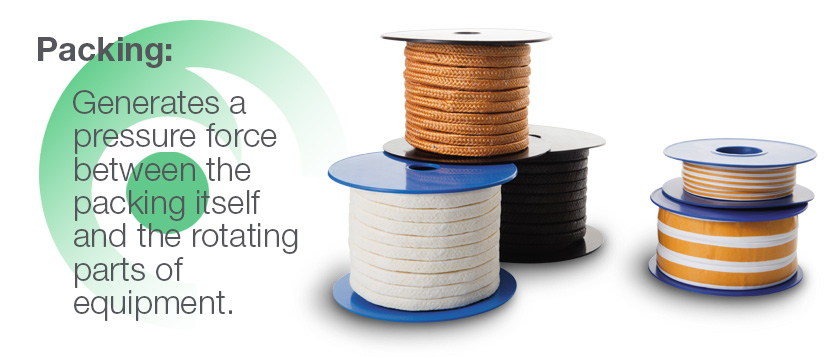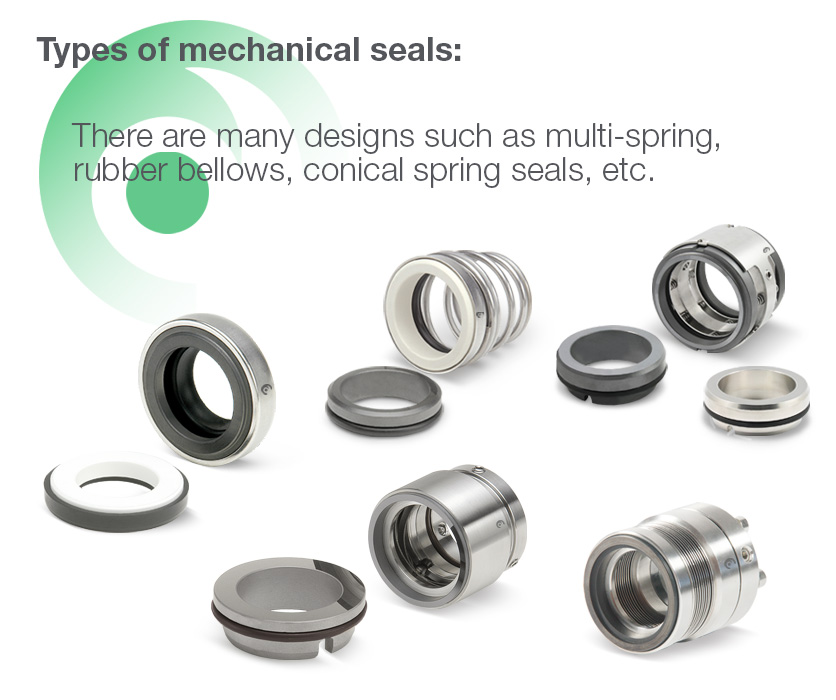The mechanical seal is one of the most important elements in any environment that will require an optimal sealing in transfer of a fluid.
Majority of industrial machinery has equipments such as compressors or pumps. These equipments are prone to leaking fluids that lead to a decrease in efficiency or even to a breakdown.
As experts in mechanical seals and products associated with the industry, at Lidering we dedicate a large part of our efforts to perfectly understand the behavior of these elements in order to satisfy the most demanding needs of our customers.
The purpose of this introduction is that you also know the operation and characteristics of mechanical seals.
What is a mechanical seal?
The broadest definition we can give about a mechanical seal is that of a dynamic sealing element whose function is to seal a leak point between two elements that present a relative speed between them.

A typical case would be a pump where we have a shaft that moves an impeller and the casing or volute of the pump that remains fixed.
As you can see, there are two elements; a rotating shaft (dynamic) and a fixed structure (static).
The fixed part is housed in the structure of the system and seals statically with an elastomer. The rotating part is mounted on the shaft and also seals statically through an elastomer.
Another component of a mechanical seal is the spring. Its function is to compensate for the small movements and vibrations of the system, ensuring that the two parts of the mechanical seal always remain in contact and thus avoid possible leaks.
Alternatives to a mechanical seal
Mechanical seals are not the only systems that allow sealability. Other common elements of the dynamic sealing are the retainer and the packing.
Packing as an alternative

A packing is also a dynamic sealing device that generates a pressure force between the packing itself and the rotating parts of equipment.
With packing, the sealing is never complete; as it has to be a small controlled leak to allow the packing to work lubricated and not be damaged.
Since about the 1950’s, mechanical seals have almost completely replaced packing in most applications.
Types of mechanical seals
The type of mechanical seal varies depending on the application and the environment to which they are exposed.
There are many designs such as multi-spring, rubber bellows, conical spring seals, etc.

They friction faces can be made of different materials such as Carbon, Silicon Carbide, Tungsten, Alumina or Graphite, among others.
The elastomers that perform the static sealing function are also available in different materials such as Nitrile, EPDM, fluoroelastomer, perfluoroelastomer, etc.
As you can see, there are a large number of combinations and variations for mechanical seals and it is necessary to know the application to choose the appropriate solution.
It is very important to identify the temperature range, application and environment that the mechanical seal will have to withstand.
The correct seal will prevent environmental contamination and lead to cost savings, thanks to the improvement of the operational efficiency of the machine.
Benefits of mechanical seals
Below, we detail 5 main benefits offered by mechanical seals:
- Reduction of friction and power loss: Mechanical seal faces remain lubricated and have perfect space between them. This results in less friction which results in less power loss.
- Long-term profitability: By guaranteeing a superior seal than other sealing systems, the loss of fluid is much lower. This means that there are fewer breakdowns and less waste generated.
- Reduced Maintenance: When properly aligned, without vibrations and at the right temperature, mechanical seals are extremely durable and easy to repair in case of failure. Moreover, the cost of most mechanical seal’s repairs is relatively low.
- Elimination of excessive wear: A properly installed mechanical seal can help protect your equipment. There are clear guidelines for alignment, impeller positioning and other similar things, which add stability and extend equipment life.
- Total reduction of leaks: Mechanical seals offer a complete sealing, preventing leaks.
We hope this blog has been useful to you. For any related questions, contact our specialists.









